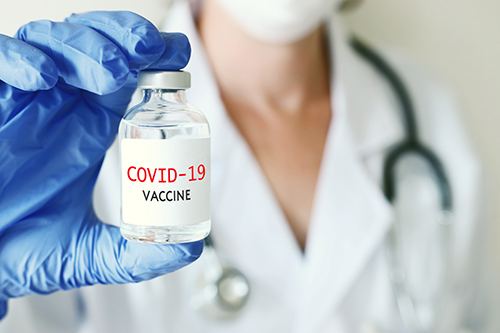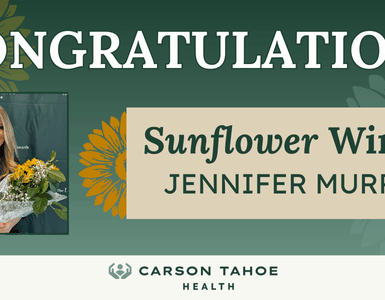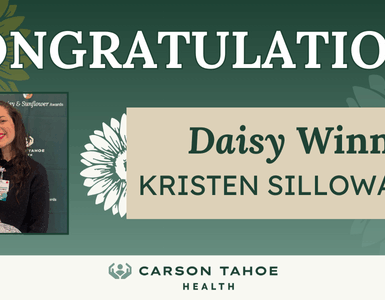It’s been about a year since the COVID-19 pandemic started and it has certainly changed our lives. We started washing our hands more often, practicing safe social distancing, and wearing masks to protect not only ourselves, but also our loved ones and neighbors. Although the virus continues to wreak havoc in many communities, we have hope that, with continued mask diligence and the release of the COVID-19 vaccine, better days will come.
What do I need to know about the vaccine?
There are three FDA-approved COVID-19 Vaccines currently available in the United States. Pfizer, Moderna, and Janssen (Johnson & Johnson). The Pfizer and Moderna vaccines have shown “effectiveness of about 95% in preventing COVID-19 disease in adults” and both vaccines require two doses of the same brand. In other words, if your first dose is Moderna, then your second dose will also be Moderna, and vice versa. The Pfizer vaccine requires you to get your second dose of vaccination three weeks after receiving your first dose, while the Moderna vaccine requires you to get your second dose of vaccination four weeks later. Unlike the Moderna and Pfizer vaccines, the Janssen vaccine only requires one dose.
What to expect when getting the vaccine?
- When you do receive the vaccination, please expect a brief registration process entering your information into a statewide database for all vaccinations, not just this one.
- You’ll go through a verification process and present ID and a work badge if applicable.
- You’ll also receive a vaccination card (a federal requirement) and wait 15 minutes after receiving the vaccine in case you exhibit any extremely rare and immediate side effects. If you have a history of severe allergies, you should be monitored for at least 30 minutes.
- Lastly, you will be offered to enroll in the app V-Safe through the CDC, which will collect data and help to monitor your symptoms
- Scheduling your 2nd booster vaccination (of the same brand as received during the first vaccine administration) will take place on-site and around the same time of first vaccination.
Who gets the vaccine?
People ages 16 and older can get the Pfizer vaccine, and people ages 18 and older can get the Moderna and Janssen vaccine. If you are pregnant or breastfeeding, it’s recommended that you talk to your doctor about the risks and benefits, for both mom and baby, of being vaccinated. If you’ve had allergic reactions to other vaccines, ask your doctor if you should get a COVID-19 vaccine. According to the Mayo Clinic, people who are allergic to polysorbate should not get a COVID-19 vaccine. Also, if you have an immediate allergic reaction after getting the first dose of a COVID-19 vaccine, do not get the second dose, as the reaction could be exacerbated.
What are the benefits?
By getting vaccinated, you are not only protecting yourself from the real dangers of COVID-19, but also those around you. The vaccine helps your body create antibodies, which means your body can now recognize the virus and how to fight it, ultimately preventing you from getting sick with COVID-19. Or if you do get COVID, you most likely develop less serious complications. Again, the Moderna and Pfizer vaccines have proven to be about 95% effective in fighting off the virus. The Janssen vaccine has less than 95% effectiveness but still has a decent percentage in fighting off the virus. Please be aware, though, just because you get the vaccine does not mean you’re off the hook from wearing a mask or getting lax on social distancing. We truly need wide-spread community participation before those things can happen. Wait for additional information from the state before adjusting your behavior.
What are the side effects?
Everyone will experience different side effects for each dose. Some people may experience none at all. One of Carson Tahoe’s ICU charge nurses, Ian Greenlee, only experienced a sore shoulder with his first dose, and leg aches and fatigue with his second dose of the Pfizer vaccine. Some side affects you may experience with the Pfizer, Moderna, and Janssen vaccine is:
· Pain, redness, or swelling on your shoulder where you received the shot
· Fever
· Fatigue
· Headache
· Muscle Pain
· Chills
· Joint Pain
Ian has confidence in the COVID-19 vaccine because “this isn’t brand new technology, it’s based on existing vaccines that have been around, and the studies included between 30-40 thousand people.”
P.S. The good news is that if you’re feeling symptoms, your body has recognized the virus and the vaccine is working!
At this time, Carson Tahoe Medical Group is distributing a limited supply of the COVID-19 vaccine to eligible patients & MyChart users according to guidelines from the state. As Quad County moves through its incremental phases, we will work jointly with Carson City Health & Human Services and other organizations to help with the community vaccination process.
- If you have MyChart and were identified as an eligible patient to receive the vaccine, you will see a message in your ‘Health Reminder’ Section on the Homepage. If you do not see appointment times listed, or if the appointment times don’t work for you, please try again next week. New schedules will open weekly on Tuesday afternoons. Appointment availability depends on COVID-19 vaccine supply. More appointments are added as vaccine becomes available.
- Please be advised that the COVID vaccine is given in two doses, 21-28 days apart. Make sure to check your availability before you schedule your first appointment.
- There is not currently a waitlist to receive the vaccine.
- If you do not have our patient portal – please email [email protected]
- To learn more about COVID-19 vaccines, visit the CDC’s webpage here.
For more information or questions about the COVID vaccine, please contact the COVID-19 hotline at (775) 434-1988 or visit Carson City Health and Human Services.







